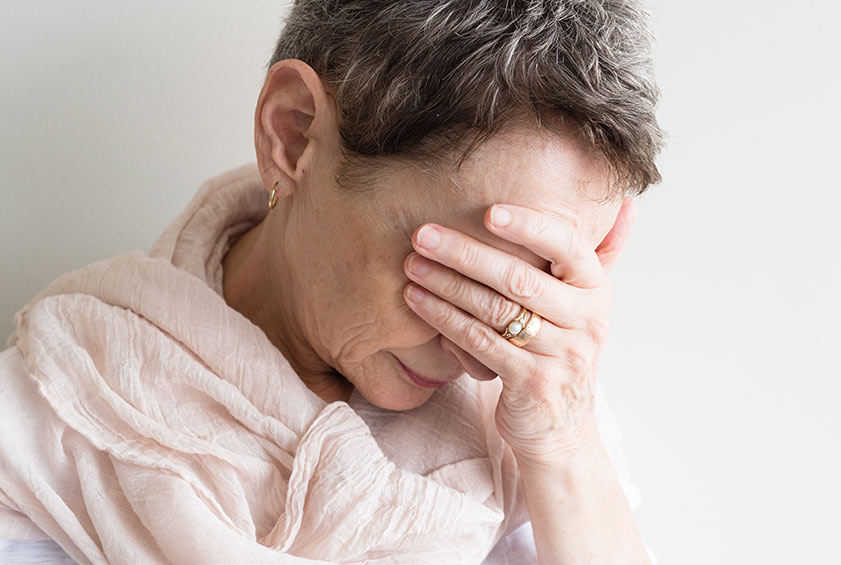The ongoing COVID-19 pandemic has caused a host of issues in many of our personal lives. No doubt it has taken a toll on the mental health of many people, especially the older generation. Many of our parents may suffer from having to self-isolate or adapt to the jarring changes that impede their day-to-day routines. During this period of uncertainty, our loved ones may develop an anxiety disorder. Hence, we must learn to recognize the causes and symptoms of anxiety in seniors so we can provide them with the right support. Help your loved one deal with anxiety today! Knowing is half the battle, and being able to spot signs of anxiety in those around us is key to helping them.
What Is Anxiety?
Anxiety is the body’s natural response to distress. While feelings of anxiety can be useful in certain scenarios, such as avoiding danger, they can be unwarranted, unpleasant and overwhelming in other situations. When anxiety is not managed well, it can develop into anxiety disorders that involve excessive levels of fear and discomfort. Anxiety disorders are often accompanied by feelings of constant worry and tension, as well as other physical changes.
Common Types of Anxiety Disorders
- Generalised Anxiety Disorder (GAD): This is the most common form of anxiety classified by strong feelings of despair and hopelessness. Symptoms that accompany GAD include the inability to focus, nausea and feeling irritable.
- Phobias: Phobias are a form of anxiety that’s characterized by having intense and irrational fears of specific locations, things, or scenarios.
- Post-Traumatic Stress Disorder (PTSD): PTSD is a form of anxiety that is brought on by the occurrence of a traumatic situation. It is often accompanied by feelings of helplessness.
- Obsessive-Compulsive Disorder (OCD): OCD is a form of anxiety that causes intrusive and persistent thoughts that will cause one to carry out certain patterns of behavior, most of which are often irrational.
Symptoms of Anxiety in Seniors
Although symptoms of anxiety may vary depending on the specific type of anxiety disorder, there are some common signs that you can look out for to help you identify individuals who are struggling with anxiety.
Some physical symptoms include dizziness, headaches, muscle tension, an increased or decreased appetite, and weight gain or loss. Insomnia or the inability to sleep properly may also point to an anxiety disorder. You may also notice frequent complaints of breathing difficulties alongside chest pains and indigestion.
Other signs that you may observe in your loved ones include memory loss, irritability, maladaptive thoughts, and the sudden avoidance of activities that they once enjoyed. Has your loved one been isolating himself at home? Is he refusing to leave the house or has he been displaying reclusive behavior?
Causes of Anxiety in Seniors
Stressors are events that trigger anxiety in an individual. Going through the process of aging is one such stressor that can cause anxiety in our loved ones. Having to grapple and cope with the changes in their bodies, the main triggers for anxiety in older adults are usually health-related issues. The body naturally becomes less sprightly with age, and the onslaught of body aches may lead to decreased mobility. Moreover, some people may develop dementia and the loss of cognitive functions can cause them to feel unsettled and anxious.







